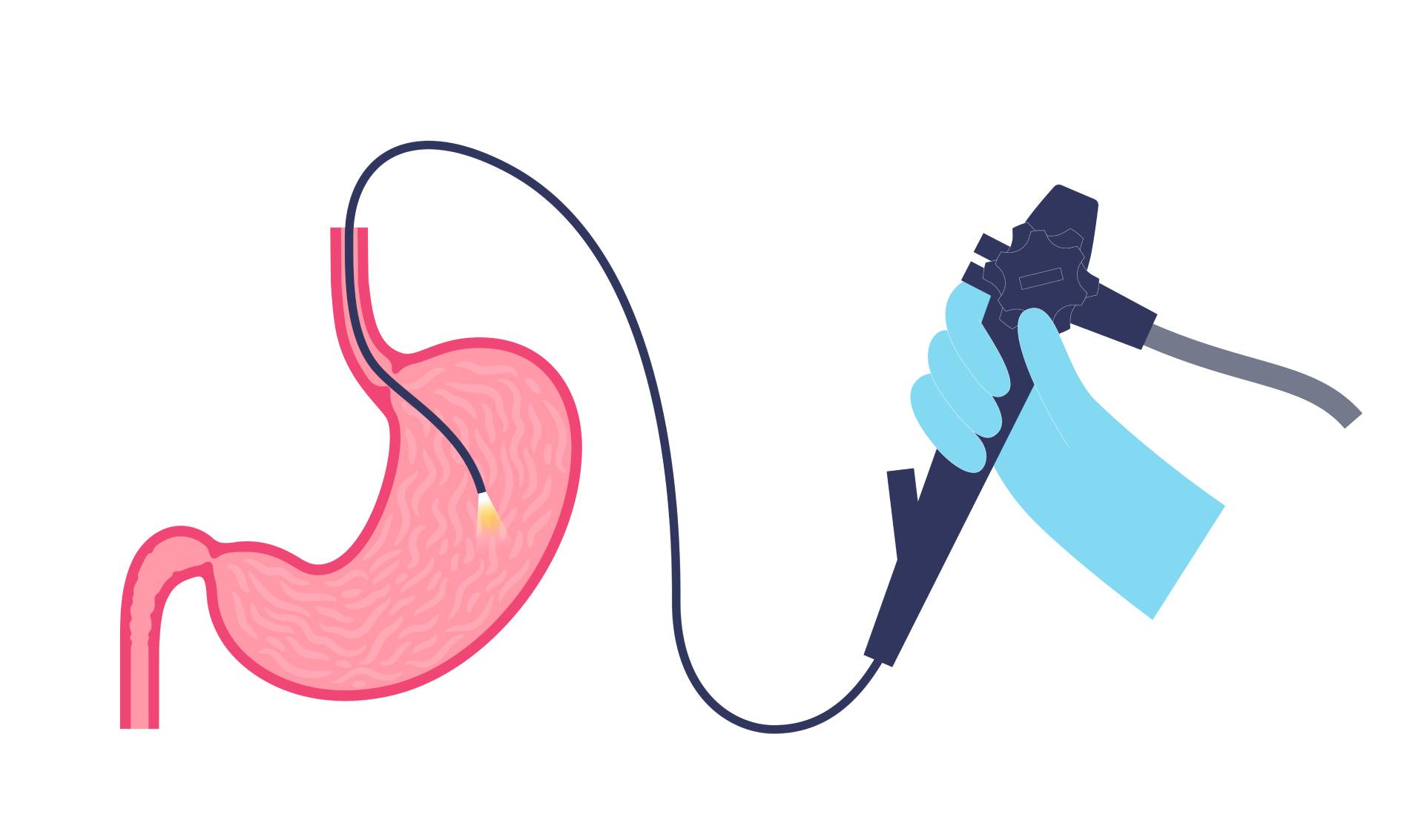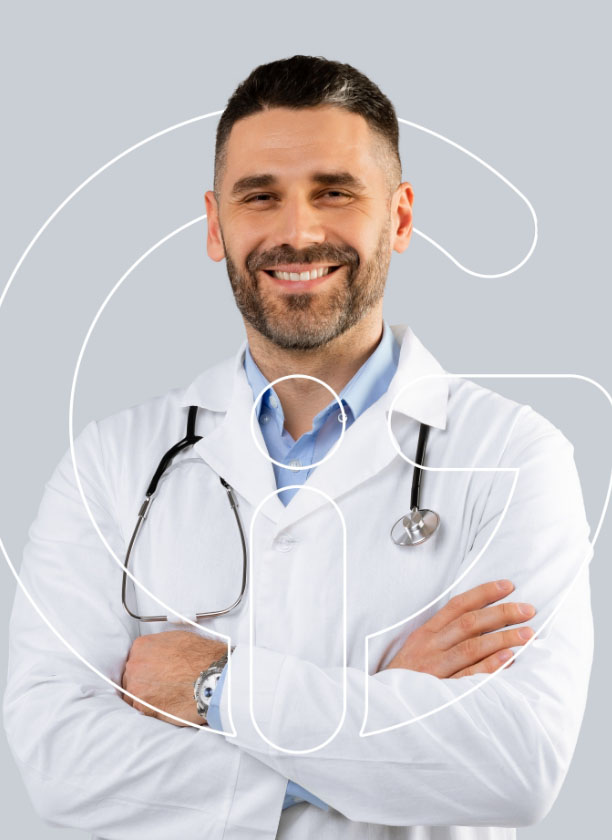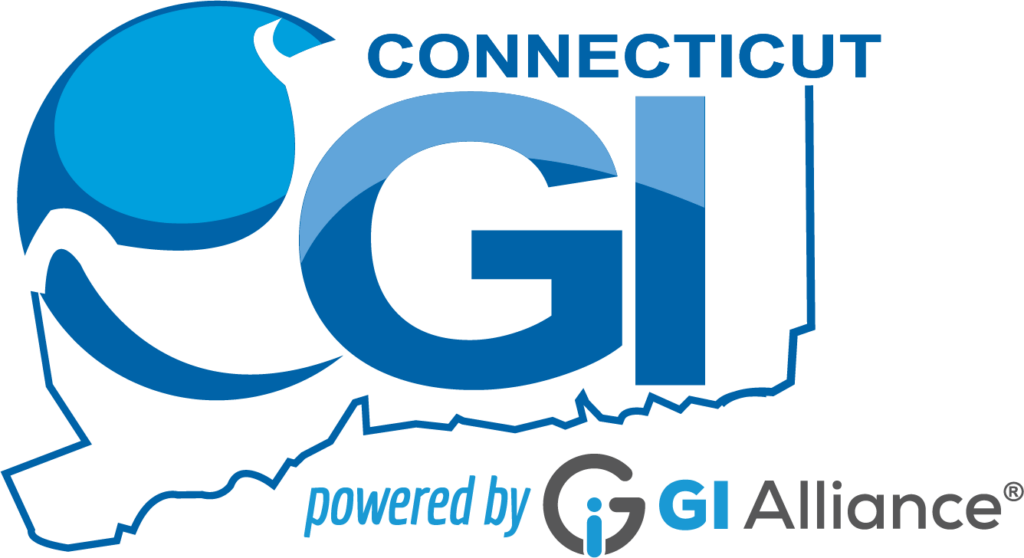Esophagogastroduodenoscopy (EGD) in Connecticut
What is an esophagogastroduodenoscopy?
An esophagogastroduodenoscopy (EGD) is a gastrointestinal procedure where a long, slim, flexible tube, or “scope,” is inserted into the mouth and moved to reach the small intestine. The scope has a light and camera attached to the end, which helps our GI specialists at Connecticut GI to more easily look at the lining of the esophagus, stomach, and the first portion of the small intestine.
An EGD may typically be suggested as a way to discover the cause of GI symptoms, such as abdominal pain, heartburn or acid reflux, complications with swallowing, bleeding, or unusual findings from an x-ray. An EGD may also be performed for Connecticut patients with constant heartburn to look for signs of esophageal cancer. If you need an EGD, please request an appointment with a GI provider at a Connecticut GI location near you.

What Are the Benefits of an EGD?
Having an EGD procedure can be advantageous for many reasons. The exam can allow your gastroenterologist to view the inner structures of the esophagus, stomach directly, and the first portion of the small intestine (duodenum). Further benefits of an EGD include:
- Generally provides an efficient, safe, and quick process
- Helps in diagnosing a number of gastrointestinal concerns, including gastrointestinal infections, GERD, celiac disease, Crohn’s disease, and others
- May help discern the causes of GI symptoms, like heartburn, nausea, vomiting, and pain
- Allows for the removal of polyps, tissue biopsies, and additional small procedures
What happens the day prior to My EGD?
You will receive instructions from your GI specialist explaining the required preparation for your EGD. Most patients will be allowed to eat regular meals the day leading up to the EGD. You may be instructed not to eat or drink after midnight other than taking necessary medications. It is incredibly important that you follow the instructions provided by your Connecticut GI specialist. We will also provide additional guidance as it pertains to your medications. Typically, your medications will be continued as normal. However, there are certain situations where this may not be the case, especially in regard to blood thinners (i.e., Coumadin®, Plavix®, warfarin, anti-inflammatories, aspirin) or if you are diabetic. If this pertains to you, your provider will give you special instructions.
What should I expect on the day of my EGD?
We recommend arriving for your esophagogastroduodenoscopy in Connecticut 1 – 1.5 hours before your exam. Once you have been brought back to the procedure room, you’ll need to change into a medical gown. An IV will be put in your arm or another area so we can administer sedation. You will be connected to equipment that helps your GI specialist to track your heart rate, blood pressure, and more throughout your EGD.
After settling into the exam room, we’ll ask you to lie on your left side on the stretcher. Sedation will be administered. Once an adequate level of sedation is achieved, the endoscope will be gently inserted into the mouth. The endoscope will be strategically advanced through the esophagus, stomach, and duodenum. A small amount of air will be injected through the scope into the GI tract to help us see better. Any excess fluid in the upper gastrointestinal tract will be suctioned out through the scope. Based on the exam results, several things can be done, including removing polyps, biopsies, and controlling bleeding. You can expect the exam to take approximately 10 – 20 minutes. After your exam, you will be taken to one of our comfortable recovery rooms, where you will be monitored while the sedation wears off.
When will I receive my results?
After your exam, your provider will discuss the exam results with you. Many patients won’t recall what they are told following their exam because their minds will be foggy from the sedation. It is recommended you bring someone with you to your procedure so that they can sit in on this discussion. We can also give you a typed report. In most cases, we’ll have your biopsy results in about a week.
Does an EGD carry any risks?
In general, an EGD is very safe. Overall, complications occur in less than 1% of cases. Many of these problems are non-life-threatening; however, if an issue arises, it could result in hospitalization and surgery. Before your exam, our team will share a consent form with you. Should any questions or concerns arise, you can discuss these with our team ahead of your EGD.
Like any other test, an EGD is not absolute. There is always a small, recognized opportunity that abnormalities, such as cancers, might be missed during the exam. It is essential to continue to follow up with our team and inform them of any new or constant problems.
Are there alternatives to an esophagogastroduodenoscopy?
To a certain extent, the other alternatives for the EGD will depend on the cause of needing an esophagogastroduodenoscopy in the first place. Generally, an EGD is the best way to evaluate and care for any suspicious findings in the upper GI tract. However, an upper GI/barium swallow, a special type of x-ray, can check your upper GI tract also. This is, bear in mind, just a diagnosis. Treating these abnormalities may necessitate an esophagogastroduodenoscopy or surgery.

Uncover the cause of your symptoms with an EGD
EGD FAQs
Are an EGD and an upper endoscopy the same thing?
You might hear an EGD referred to as a few different things. In some cases, it could be referenced as a “gastroscopy” or an “upper endoscopy.” Even though these names may vary, they usually mean the same thing as an EGD.
What are regarded as "normal" results for an EGD?
Results that are “normal” for an EGD procedure often indicate that the specialist did not identify abnormal tissues in the upper part of the gastrointestinal tract. However, normal results may be represented by a normal color and smooth texture in your esophagus, stomach, and duodenum. Furthermore, there shouldn’t be any signs of bleeding, inflammation, or growths in these tissues. It’s important to understand that a “normal” EGD result does not always rule out the presence of all medical conditions. Some conditions might not be detectable with an esophagogastroduodenoscopy or may be located further down in the gastrointestinal tract, beyond the reach of the endoscope device utilized during the procedure.
Why might an EGD be requested?
Your Connecticut GI specialist may recommend an esophagogastroduodenoscopy if you have Crohn’s disease or liver cirrhosis to help keep track of these concerns. In addition, an EGD test might also be recommended should you experience:
- Tarry or black stool
- Vomiting of blood
- Heartburn
- Pain in the upper abdomen
- Issues with swallowing
- Unintentional loss of weight
- Persistent nausea
What might I need bring to my EGD appointment?
When you arrive for your EGD procedure, you might be required to complete a few patient forms. Therefore, it is important to bring your insurance card and ID with you to your appointment. It also can be helpful to bring a written list of any prescription and nonprescription medications you take, their dosages, and the reason for taking them. We encourage you to leave any jewelry and other types of valuables at home.
